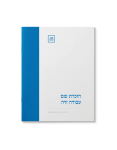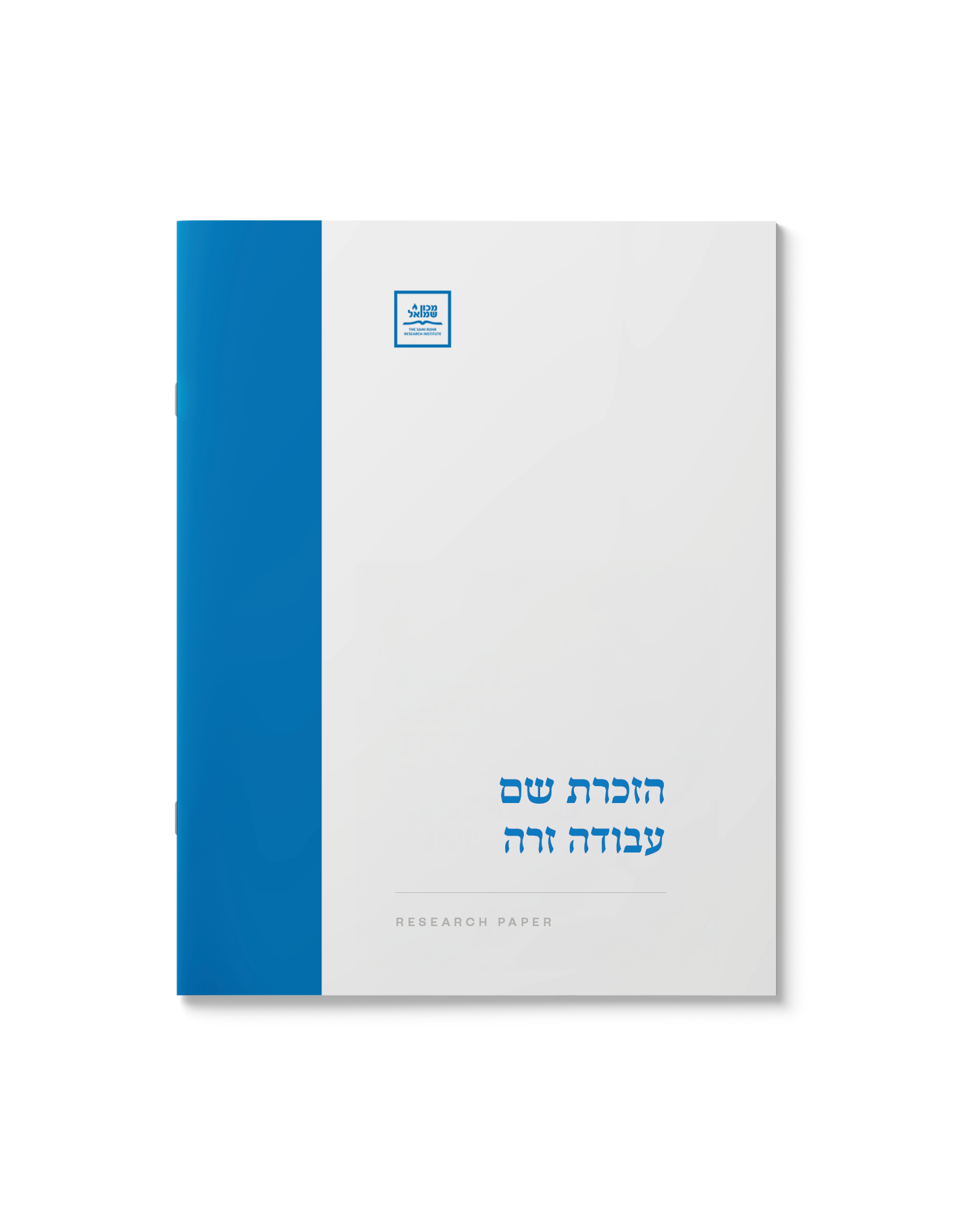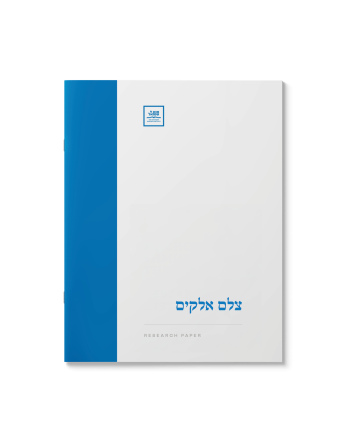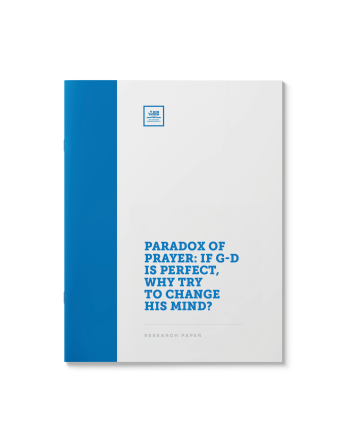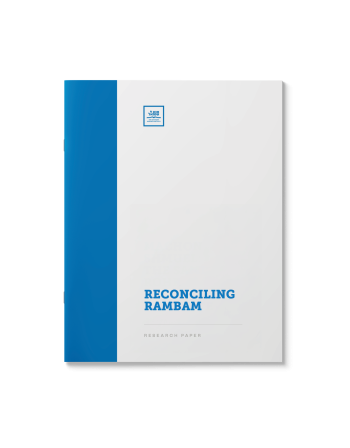הזכרת שם עבודה זרה
$39.00
בירור מקיף ביסוד הדין של הזכרת שם עבודה זרה והמסתעף בפרטי דיני כתיבת שם הדת או האליל שלהם ומנהיגיהם.
| Language | Hebrew |
|---|---|
| Paper Type | Research Paper |
| Pages | 21 |
Related Products
“Why do the wicked prosper?” (Jeremiah12:1) This question has troubled the faithful from the times of Job and Jeremiah until today. Ought our faith in an unknowable G-d be weakened when witnessing the prosperity of the wicked? A smorgasbord of classic approaches.
(Hebrew)
The belief that the world is created and sustained by G-d at every moment is commonplace. Recently some have challenged the assumption that this is the classical understanding of mainstream Jewry. Is he correct?
How can we reconcile the fact that the length of a person’s life is predetermined by G-d and those behaviors that can shorten one’s life? Do we have any control over life expectancy? How much significance ought one give to medical intervention in terms of lengthening life?
Life is an endless gauntlet of tests and challenges. Judaism teaches us that G-d never gives us a challenge we can’t surmount, but the question remains: why? Why does G-d continuously test us? What purpose does it serve? Can we not succeed without them? And how can we learn to thrive in the face of challenge?
The human soul has always sensed the presence of a greater power. Yet the “G-d of Concealment” has somewhat evaded logical discovery.
Study some of the classic proofs for the existence of the Creator as presented by classic Jewish Philosophers (R. Saadya Gaon, Rambam, R’ Bachye ibn Paquda, Ralbag and others), the challenges presented by some more modern authors (including Hume, Kant, Neizche, Darwin and Dawkins) and some of the responses offered to their ideas.
Including a summary and some suggested readings.
כי בצלם אלקים עשה את האדם. האומנם? והרי אינו שייך ציור גופני אצל הקב״ה ח״ו? להלן חקר ועיון תמציתי משלל הפירושים שנאמרו בזה על ידי מפרשי המקרא, הוגי מחשבת ישראל, ומאורי הקבלה והחסידות.
Love is not bound by time. Even after a loved one passes on, they continue to live on in our hearts; we treasure the memories of the times we spent together and immortalize them through noble deeds.
But may we communicate with them after they’ve gone? The Torah (Devarim 18:11) instructs us to avoid all occult arts, such as sorcery, divination and necromancy. What are the details of these laws and what practical relevance do they have?
Related: Familial Bonds in the Hereafter and תפלה על קברי צדיקים
Table of Content
(21 PAGES)
Query from a Shliach in France
If we believe that G-d is the ultimate good who does only good, why would we pray for a change to our fate? This paper solves the paradox between perfect belief in G-d’s benevolence and the centrality of prayer in Jewish belief.
In recent decades, thousands of Jews have gravitated to the East in pursuit of spiritual enlightenment. More recently, several Eastern Practices have been secularized, popularized, and repackaged as physical and meditative exercises. Does this make them kosher? Which practices are problematic and should be avoided? And what was the Rebbe’s response to the popularization of Yoga and Transcendental Meditation back in the ’70s?
(67 pages)
Submitted by a Shliach in New York
Bitachon. It’s a powerful word; the absolute faith that G-d will always provide. From financial deals to health concerns, travel arrangements to hopes for the future – we trust that G-d only acts for the best. But how can we have Bitachon when we’re faced with a violent and dangerous world? When personal tragedy strikes, how can we continue to have faith? Where is the line drawn between Bitachon and folly? When one laughs in the face of nature, is he trusting in G-d or scorning G-d’s providence?
The Rambam is known as the “Great Eagle” of Torah scholarship because of his incisive logic, brilliant analysis, masterful organization and a host of other attributes. But as inseparable components of Torah, synthesizing the halachic teachings of the Mishneh Torah and the philosophical positions of the Moreh Nevuchim, can be perplexing.
We present a review of the unique approach of the Lubavitcher Rebbe to the discrepancies between some of Rambam’s philosophical writings and traditional Halachic thinking. The Rebbe presents a coherent profile of a Rambam you may have not yet met.
מעיקרי האמונה הוא החיוב להאמין שהקב”ה מושלל הוא מגשם וציור גופני. אך האומנם זאת היא הדיעה המוסכמת אצל גדולי ישראל לדורותיהם? והאם ביכולתו ית׳ הבלתי בעל גבול להתלבש גם בדמות גופני? על שלילת הגשמות והנמנעות אצלו ית׳ בספרות החקירה והחסידות.


